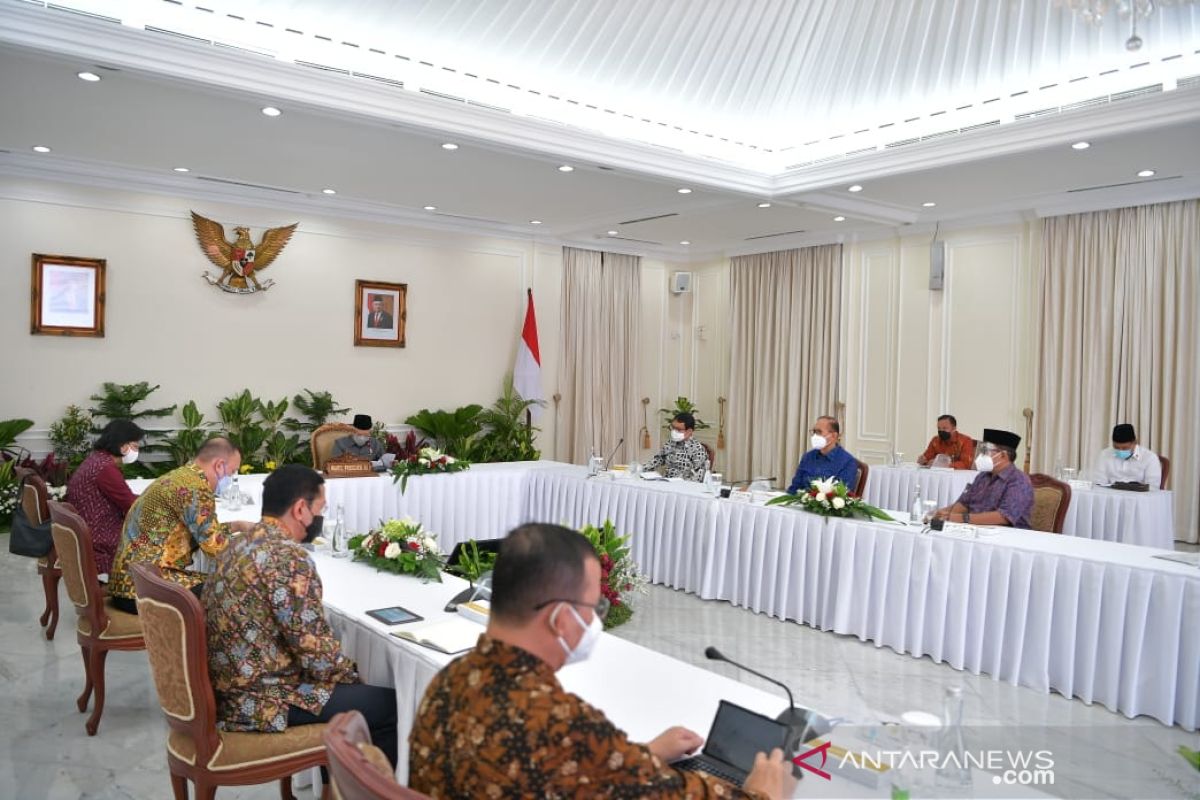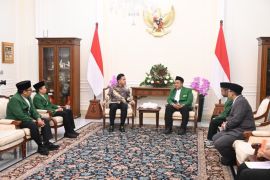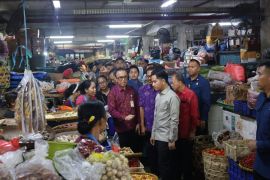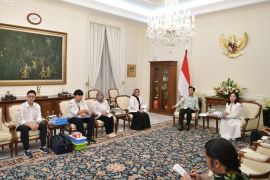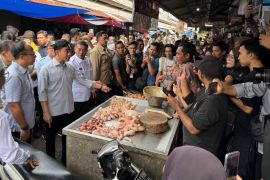Amin delivered the statement during a meeting with the management of the National Sharia Economic and Finance Committee (KNEKS) at the Vice President's official residence here on Thursday.
“We want more investors in the development of the halal industrial area. In addition to building new halal industrial areas, we must optimize existing (ones)," Amin affirmed.
The vice president remarked that by developing the halal industrial area, which is integrated with industrial estates in several regions, they also support the government's efforts to create a halal ecosystem in Indonesia.
In addition, the halal industrial area can encourage the realization of Indonesia's goal to become the largest halal producer and halal center in the world by 2024.
Related news: Indonesia focusing on building national halal ecosystem
The vice president emphasized that the National Sharia Economic and Finance Committee management must implement the work program with utmost seriousness in order to yield real work results.
"Apart from the medium- and long-term work plans, there must be some quick wins that (bears results)," he affirmed.
Finance Minister, concurrently National Secretary of the National Sharia Economic and Finance Committee, Sri Mulyani Indrawati, reported that the process of codification of halal products had been integrated at the Directorate General of Customs and Excise of the Finance Ministry and the halal industrial area.
Indrawati explained that the step aimed to avoid overlapping regulations and codification of halal products and certifications.
"We need to continue to increase the added value of exports that include halal certificates, so that business actors can provide assurance, especially for their market destinations," Indrawati stated.
Studies related to the provision of fiscal and non-fiscal incentives to the halal product industry are continuously conducted, including the application of a zero rupiah tariff for halal product certification for micro, small, and medium enterprises (MSMEs).
"The implementation of the zero rupiah tariff needs to be implemented immediately and the evaluation can be seen in line with the issuance of the Finance Ministry's Regulation," she remarked.
Related news: Jakarta prepares 5,000 free halal certificates for MSMEs
Related news: Halal industry plays strategic role in national economy: VP
Translator: Fransiska N, Mecca Yumna
Editor: Suharto
Copyright © ANTARA 2021
